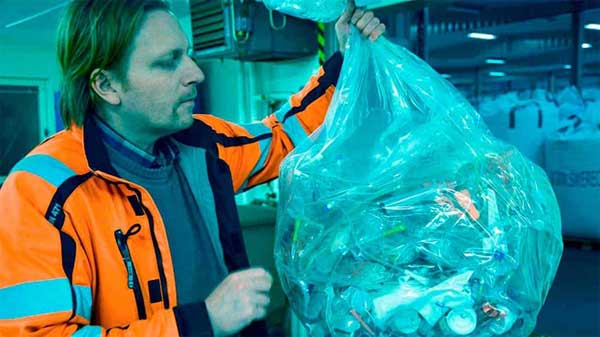|
PVCMedís contribution to the Circular Economy
Hospitals consumes a large number of IV fluid bags
made from PVC as well as large quantities of tubing and oxygen masks. Pilot
projects on PVC recovery in +300 hospitals around the world demonstrate that
these kinds of PVC medical products can be separated relatively easily by
hospital staff after use and recovered for recycling into new products. The
projects ensure that good planning, ongoing education and liaison with the
hospitalís waste management team and contractors are put in place to help them
efficiently sort, store the waste and handle the logistics of safely moving
waste.
PVC as a resource is too valuable to discard. The
VinylPlusģ programme turned the commitment of the PVC industry into action. The
programme helped establish a long-term sustainability framework for the entire
PVC value chain, ensuring that PVC products are properly sorted, and where
possible recycled into a new secondary PVC product.

Working towards a sustainable future is a priority
for the PVC industry. This has again been demonstrated by the Circular Economy
Package, recently published by the European Commission with the purpose of
stimulating the EUís transition towards becoming a more circular economy.
Innovative ideas and technological advancements over recent years have allowed
significant progress to be made in the collection, recycling and recovering of
PVC-based products. Targeted PVC waste management has ensured that this valuable
raw material is not immediately discarded, but rather reprocessed into a
second-life product where possible.
https://pvcmed.org/circular-economy-in-healhcare/
SABIC Launches Biobased, Certified Renewable
High-performance Amorphous Polymer
SABIC has launched a new portfolio of biobased ULTEM
resins that offer sustainability benefits while delivering the same high
performance and processability as incumbent ULTEM materials.
These polyetherimide (PEI) materials are the first
certified renewable high-performance, amorphous polymers available in the
industry. Using a mass balance approach, for every 100 kg of ULTEM resin
produced, SABIC replaces 25.5 kg of fossil-based feedstocks with biobased
materials derived from waste or residue.
This advanced offering is a drop-in material option
for current ULTEM materials and can support customersí sustainability goals for
challenging applications where high temperature, dimensional stability or
demanding mechanical performance is required.
The company says biobased ULTEM resins can
potentially reduce carbon footprint by up to 10% compared with fossil-based
incumbent grades, giving the material the International Sustainability and
Carbon Certification Plus (ISCC+) designation.
https://www.medicalplasticsnews.com/news/medical-plasticssustainability-news/sabic-launches-biobased-certifiedrenewable-high-performance/
date : 27 DECEMBER 2021
|

